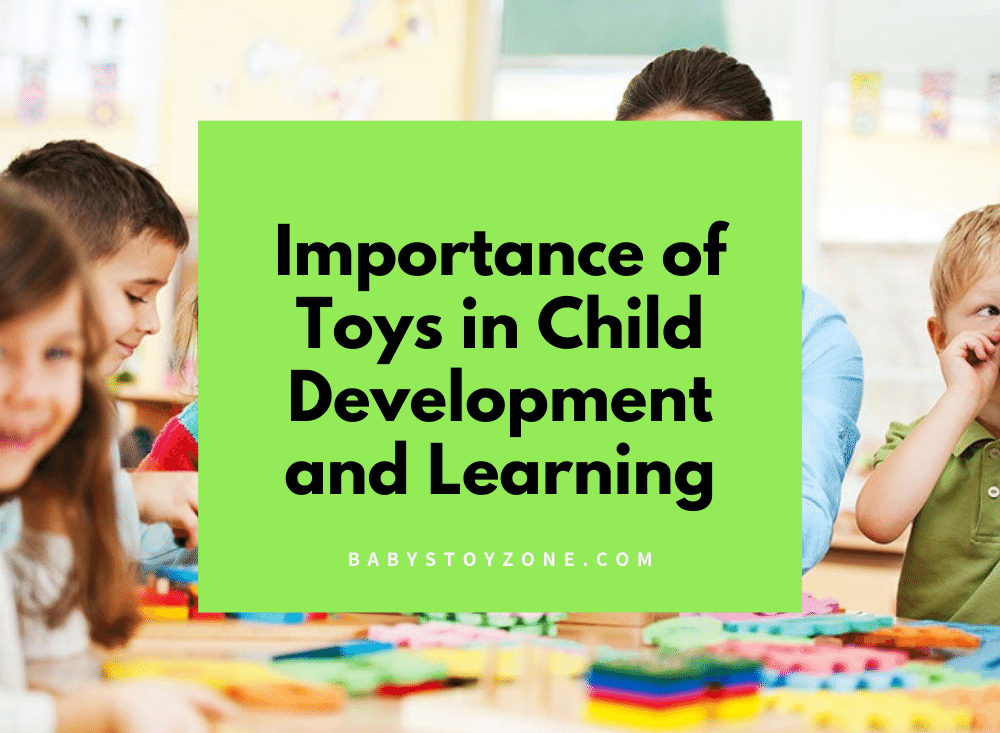There is a lot of evidence that toy play is a crucial part of a child’s development. Toys are more than basic playthings for children of all ages who enjoy playing with them and the various roles they play in their imagination and make-believe activities. Children learn through all of their senses, according to research, and many toys provide hands-on learning opportunities that can implant basic skills that will benefit them for the rest of their lives.
When you were a kid, did you have a favorite toy? It accompanied you everywhere, and you adored it more than anything else. That was because that toy was so important to your development as a child. Toys are prevalent in houses with children, yet they serve a purpose other than enjoyment. They’re crucial for the growth of the child.
What Is the Importance of Toys?
To begin, consider why toys are so essential to your child. Toys appear to be merely a source of fun for kids at first glance. They are, in fact, a great deal. Toys can be used to assist your child grasp the world around them as early as a month old. They are developing abilities that are necessary for proper development as they play.
It’s vital to keep in mind that a toy isn’t always something that’s labeled as such. A toy can be anything from a set of keys to a cup or even a stub of toilet paper. A toy can also be used as a tool for creativity. Toys that assist a child understand the world include paint, play, and pencils.
When you think about toys, you’re probably thinking of what they do in their leisure time. In fact, they’re gaining knowledge from their toys. Giving kids a jigsaw puzzle encourages them to recognize patterns and engages young brains in the process of solving the puzzle. When a building block tower falls down, even smaller children will get a physics lesson.
Your baby will be learning through their toys long before they set foot in the classroom. If you provide them with a variety of toys, they will be able to begin learning at a young age.
STEAM is taught to children through toys.
Children’s brains are sponge-like. They are constantly taking in data from their surroundings. Toys provide a new way for children to learn about science, technology, engineering, art, and mathematics. Regardless matter how basic or complex a toy is, it will teach your child a lesson and emphasize the value of toys in child development.
A physics lesson is when your child builds a skyscraper out of blocks and then watches it collapse to the ground. The sight of a remote-control car bouncing around solely on the controller’s radio waves piques children’s interest in how it all works. Your child’s brain will be stimulated by a problem, and they will be able to investigate patterns.
When it comes to toys, never underestimate the power of education. Because it engages their senses, children learn more through creative play. This offers them a cognitive advantage and motivates them to learn more about the world around them.
Development of the Mind
When your child starts school, they will begin to learn vital skills such as algebra and language. They’ll be learning them through their toys even before they start school. As previously stated, youngsters are learning how the world works every time they play.
Different toys will teach different cognitive skills to your youngster. A board game, for example, can help kids improve their concentration and memory, while building blocks can help them solve problems. Having access to these toys allows students to practice these abilities before starting school.
It’s easy to become overwhelmed with too many toys.
Toys are beautiful and vital, but keep in mind that a youngster can become overwhelmed if there are too many possibilities. When it comes to toys, quantity does not trump quality. It’s preferable to have fewer toys that your child can do more with than to have more toys than clutter up the play area.
If you find your child struggling to tidy up their toys, coping with strong emotions during playtime, or saying “I’m bored” while having a lot of toys, it’s likely that the overabundance of toys in their area is affecting their emotional well-being.
Conclusion
The most significant benefit of good toys is that they provide an enjoyable learning opportunity for children. At playtime, most parents become involved. This stimulates the establishment of long-lasting relationships. The best gift you can give your children is unstructured playtime. When your child chooses how they want to play and which game they want to play, you are assisting them in developing their decision-making skills.
We as parents must evaluate the role of toys in the growth of our children, both in terms of the types of toys we provide and the number of toys we supply. Keep in mind that children don’t necessarily require more, but rather better.
Read More- The Best Construction and Building Toys, According to Teachers

